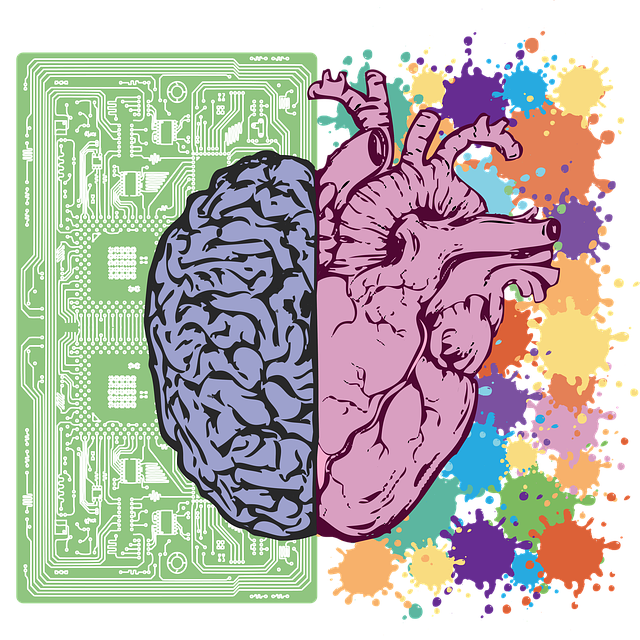In 2014, I had a severe stroke that caused some paralysis on my right side. I was 54, and finally starting to not take my health for granted quite so much. I had recently switched to a diet of mostly organic food and reduced my intake of sugar and white flour. Although the stroke was quite unexpected, I couldn't be too surprised since my family has a history of heart disease. Genetics add to the risk factor , just like with ADHD, which also runs in my family. I did have a stressful job trying to keep up with my coworkers, the majority who were in their 20s and 30s. The stress likely contributed to the risk as well.

Yet, even after factoring all that, the biggest culprit was undiagnosed ADHD. People with ADHD tend to procrastinate until situations are at crisis points. Then, more often than not, we go into panic mode. Making bad choices or just ignoring our symptoms until it's too late. I actually felt I was in quite good shape, yet that was not entirely based on reality. In fact, I had hardly ever gone to a doctor in my entire adult life for checkups of any sort.
Not to say I would have done so without ADHD, however, ADHD does make it hard to stay organized. Scheduling doctor appointments and then keeping them seemed to me nearly impossible. It was just easier to wait until something forced me to go.
Six months before, I had a smaller stroke that caused no paralysis. I can still remember that stroke like it was yesterday. I was visiting my son's new home before I had to go to work at 3:30 PM. As I stood there checking out his new television, I felt like I was going to pass out, but didn't. I sat down until I felt better. I still had intended to go to work. Walking to my car I felt lethargic and had my wife drive me home. By the time I got there I was pretty sure something was wrong, but I decided I'd be okay. By that evening, it was obvious something was definitely wrong. The weakness became more focused on my right side, which we now know was a sign of a stroke. My wife drove me to the emergency room. After three days and a battery of tests, I was out of intensive care and had stabilized. My wife came in for a visit and we heard the staff talking just outside the door. The lead RN was suggesting I should stay a few more days to have some more tests done before releasing me. The other three staff members were telling her that my charts looked good. They were just about to release me.
That's when that good old ADHD trait of impulsiveness kicked in big-time. Without hearing her side of the story. I immediately concluded I was ready to leave. She flat out told me if I left I could die, and I'd have to sign a release stating as much. She did her best to talk me out of it, but my mind was already made up. I signed the release and walked out of the hospital. I went back to work the next day.
I'm convinced ADHD had a role in that extremely bad decision. Dr. Russell Barkley, PhD. an internationally recognized authority on Attention Deficit Hyperactivity Disorder (ADHD or ADD), lost his brother to a single car accident at age 56. Barkley believes this was due to the symptoms common to ADHD such as a risk-taking, distractibility, and impulsiveness. Ironically, Dr. Barkley had conducted studies during his career on the dangers of driving and ADHD. Unfortunately, his brother ignored all his warnings.
I was not making regular visits with my doctor, which of course, was because I kept putting it off. Six months later, I had a major stroke. The previous evening I had stayed up until around 3:30 AM working on a project. When I woke, It was difficult to get out of bed due to weakness in my legs. I assumed that I just didn't get enough sleep. I popped my head out onto the patio to say good morning to my wife, Linda. She immediately commented that I sounded drunk. I remember thinking that was strange, because I heard myself as speaking completely normal. My body grew weaker throughout the morning until it became clear we needed to go to the hospital again. this time It was a struggle to walk up the incline from the parking to the entrance. I insisted I didn't need a wheelchair. As soon as I checked into the ER, I was in a wheelchair. I was in a wheelchair for the next couple of months until I could walk with a cane.
In-hospital physical rehabilitation lasted a full month. Once again, my blood pressure was a constant threat. The doctors had a hard time finding the medication to control it. They tried several different combinations of blood pressure medication. Still nothing seemed to bring the pressure down. It reached to above 200/100, far higher than normal.
Finally they found the combination that did the trick. My blood pressure came down to just above normal levels. I could finally go home! My general practitioner had to sign a form before my release. He refused because I had not been to see him in months. I don't blame him for that reaction. Yet, if people understood ADHD more, they might have empathy with us. One more reason why I'm blogging about this subject.
@originalworks